Berlin’s queer history is a remarkable journey of resilience and progress. The "Queer Berlin Tour: Birthplace of LGBTQ+ Movements" offers a captivating exploration of this vibrant legacy. Participants will uncover the world’s first gay ghetto, witness the iconic El Dorado Cabaret, and learn about trailblazers like Magnus Hirschfeld who paved the way for LGBTQ+ rights. With engaging storytelling, this tour provides a unique perspective on the struggles and triumphs that have shaped the evolution of queer culture in the city. Delving into Berlin’s past reveals a remarkable tale that continues to inspire and empower communities today.
Key Points

- The Queer Berlin Tour explores the city’s vibrant LGBTQ+ history, featuring significant sites like the world’s first gay ghetto in Schöneberg.
- The tour highlights the contributions of pioneering figures such as Magnus Hirschfeld, who founded the Institute for Sexual Science and coined the term "transsexualism."
- Participants gain insights into the emergence of the gay emancipation movement and its struggle for equality, as reflected in the monument in Tiergarten.
- The tour delves into the cultural impact of influential LGBTQ+ icons, including Marlene Dietrich, Ernst Röhm, and David Bowie, who challenged gender norms.
- The tour examines the resilience of the queer community in Berlin, tracing its history from the Nazi persecution to the post-WWII rebirth of Schöneberg as a vibrant LGBTQ+ hub.
Tour Overview and Details
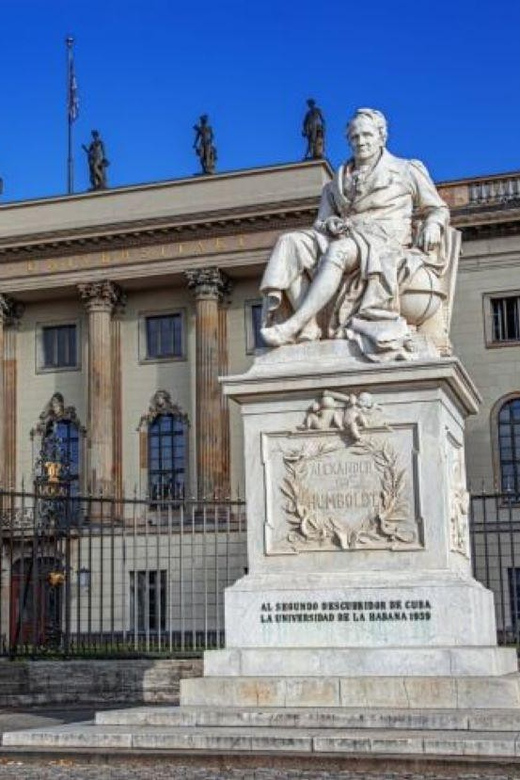
The Queer Berlin Tour offers a comprehensive exploration of the birthplace of LGBTQ+ movements. Priced at £94.76 per person, the 3-hour tour is available in German and English for private or small groups.
Travelers can reserve their spot without upfront payment and enjoy a flexible cancellation policy with a full refund up to 24 hours in advance.
The tour showcases the city’s queer pioneers, scientists, activists, and artists, visiting significant sites like the world’s first gay ghetto and the former El Dorado Cabaret.
Visitors will gain insights into the lives of historical figures and the influence of key movements, all while seeing Berlin’s vibrant queer history.
You can also read our reviews of more tours and experiences in Berlin
Historical Significance and Sites
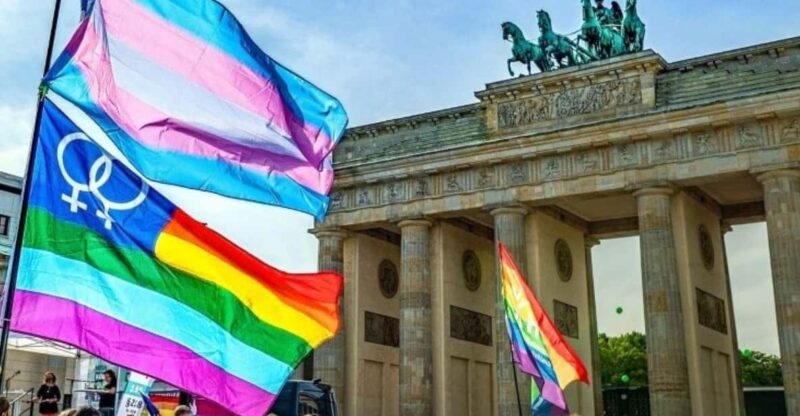
Exploring Berlin’s queer pioneers, scientists, activists, and artists, the Queer Berlin Tour takes visitors on a journey through the city’s rich LGBTQ+ history.
Discover Schöneberg, the world’s first gay ghetto, and the former El Dorado Cabaret, once a hub for the LGBTQ+ community.
Visit the colorful monument to the Gay Emancipation Movement in Tiergarten and learn about the Institute for Sexual Science founded by Magnus Hirschfeld, who coined "transsexualism" and pioneered the gay rights movement.
The tour also explores Christopher Isherwood’s former flat and the sites related to the post-WWII rebirth of Schöneberg as the gay heart of the city.
Notable Figures and Cultural Impact
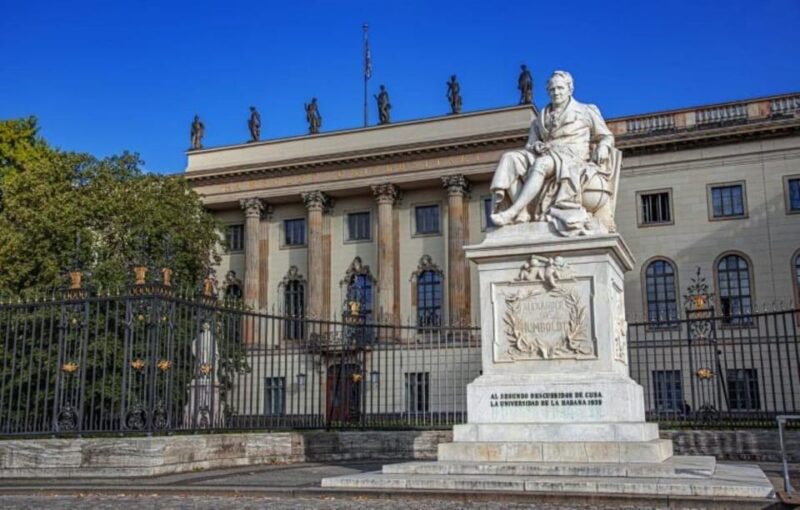
Insights into the lives of historical queer figures like Marlene Dietrich, Ernst Röhm, and David Bowie provide a deeper understanding of Berlin’s influential LGBTQ+ community. Hirschfeld, who co-authored the first pro-gay film in 1919, "Anders als die Andern," coined "transsexualism" and pioneered the gay rights movement. The persecution of LGBTQ+ individuals under the Nazis and the impact of the Cold War on the queer community further highlight the cultural significance.
| Historical Figure | Significance |
|---|---|
| Marlene Dietrich | Legendary actress and singer, known for her androgynous style and defiance of gender norms |
| Ernst Röhm | Co-founder of the Nazi Party, openly gay, and a leading figure in the Sturmabteilung (SA) |
| David Bowie | Iconic musician who embraced fluid sexuality and gender expression, inspiring LGBTQ+ artists |
Tour Experience and Highlights
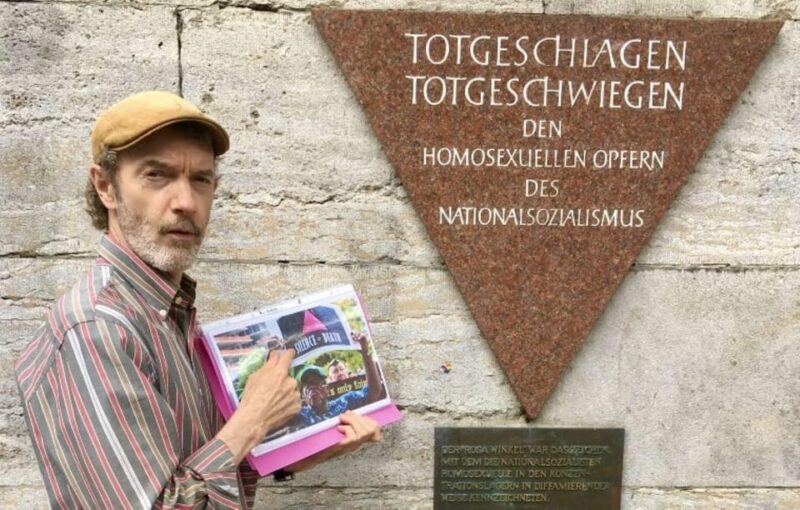
The guided walking tour takes participants on an immersive journey through Berlin’s vibrant queer history.
Visitors will explore key historical sites, hearing tales of queer pioneers and the evolution of Berlin’s LGBTQ+ community. The tour blends significant tourist attractions with lesser-known local spots, providing a unique perspective on the city’s queer culture.
Engaging storytelling from the guide enhances the understanding of this rich history, from the hotel of the world’s first gay ghetto in Schöneberg to the persecution of LGBTQ+ individuals under the Nazis and the impact of the Cold War.
The tour offers an enlightening and memorable experience for those interested in exploring Berlin’s queer past.
More Great Tours NearbyPositive Participant Reviews

Travelers have been overwhelmingly positive in their reviews of the Queer Berlin Tour, praising the experience as informative and entertaining.
With an overall rating of 5/5 based on 4 reviews, participants particularly appreciated the blend of historical insights and personal anecdotes from the guide. They found the storytelling to be lively, enhancing their understanding of Berlin’s queer history.
The tour’s ability to showcase significant tourist attractions alongside lesser-known local spots also drew praise, offering a unique and engaging perspective on the birthplace of LGBTQ+ movements.
Travelers consistently recommended the tour for those interested in exploring Berlin’s past through a queer cultural lens.
- Discover Berlin Half-Day Walking Tour
- Sachsenhausen Concentration Camp Memorial Tour From Berlin
- Explore Berlins Top Attractions 3-hour English Walking Tour
- Third Reich Berlin WalkingTour Hitler and WWII
- Sachsenhausen Concentration Camp Memorial Walking Tour From Berlin
- Visit to the Sachsenhausen Concentration Camp
Exploring Schöneberg’s Queer History

Why does the Queer Berlin Tour explore Schöneberg, the world’s first gay ghetto? This historic neighborhood was the epicenter of Berlin’s LGBTQ+ community, emerging as a vibrant hub for queer culture and activism.
The tour delves into this rich history, highlighting:
- The former El Dorado Cabaret, a renowned hub for queer nightlife in the 1920s.
- The colorful monument to the Gay Emancipation Movement in Tiergarten.
- The influence of Christopher Isherwood, whose flat is a key site on the tour.
- The post-WWII rebirth of Schöneberg as the gay heart of the city.
Exploring this neighborhood’s pivotal role in shaping Berlin’s queer identity provides a deeper understanding of the city’s LGBTQ+ history and its lasting impact.
The Institute for Sexual Science
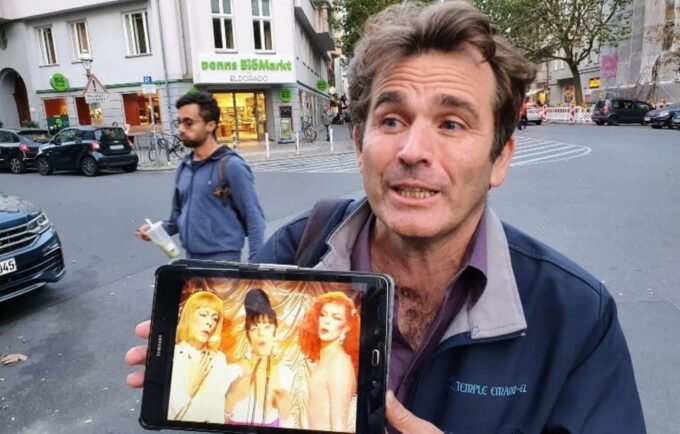
Alongside the exploration of Schöneberg’s queer history, the Queer Berlin Tour also examines the significant role of the Institute for Sexual Science, founded by pioneering sexologist Magnus Hirschfeld.
Established in 1919, the institute was a groundbreaking center for research, education, and advocacy related to sexuality and gender identity. Hirschfeld, who coined the term "transsexualism," played a pivotal role in the early gay rights movement, co-authoring the first pro-gay film in 1919.
The institute’s progressive work and Hirschfeld’s influence were cut short by the rise of the Nazis, who ransacked the facility and forced Hirschfeld into exile.
The tour highlights this important chapter in Berlin’s queer history and Hirschfeld’s lasting impact on LGBTQ+ rights.
Legacy of the Gay Emancipation Movement
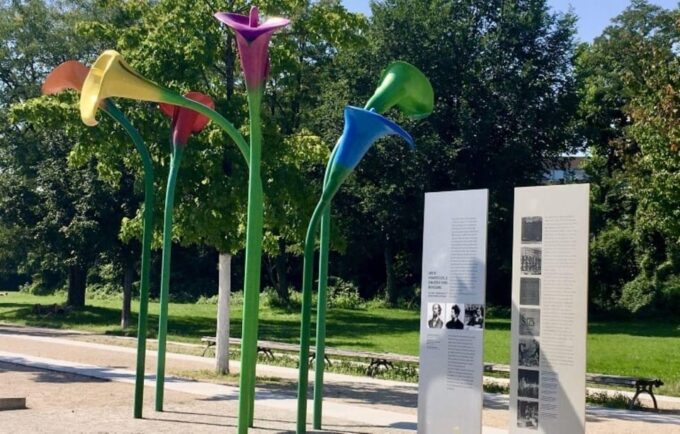
Commemorating the pivotal Gay Emancipation Movement, a vibrant monument stands in Berlin’s Tiergarten, serving as a powerful symbol of the community’s resilience and progress.
This memorial not only honors the pioneers who fought for LGBTQ+ rights, but also represents:
- The ongoing struggle for equality and acceptance
- The resilience of the queer community in the face of adversity
- The importance of preserving and celebrating queer history
- The hope for a future where all you can live freely and authentically
The monument’s colorful design and prominent placement in the heart of the city reflect the vibrant and unapologetic spirit of Berlin’s queer culture, a legacy that continues to inspire and empower generations to come.
Frequently Asked Questions
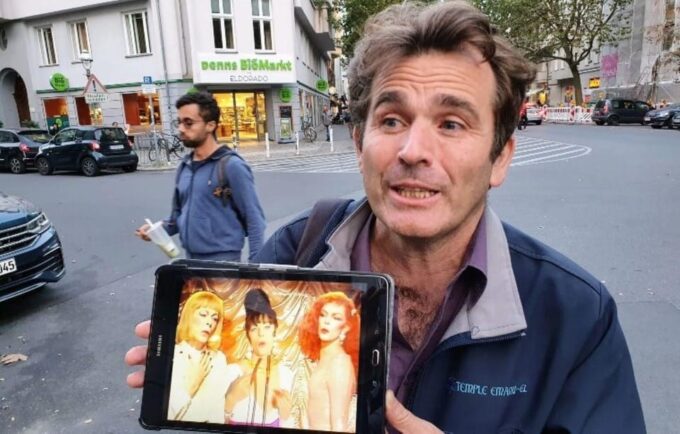
Is the Tour Accessible for People With Disabilities?
The tour is designed to be accessible for guests with disabilities. The tour provider offers accommodations and can make arrangements to ensure an inclusive and enjoyable experience for all participants.
Can Participants Take Photos During the Tour?
Participants are generally allowed to take photos during the tour, as long as they do not disrupt the group or violate any site-specific policies. The guide may provide guidance on appropriate photography opportunities throughout the experience.
Do the Tours Accommodate Different Age Groups?
The tours accommodate a range of age groups. They welcome participants of all ages and aim to provide an engaging and educational experience tailored to the diverse needs and interests of the group.
Are There Any Dietary Accommodations for the Tour?
The tour does not mention any dietary accommodations. Participants should check with the tour provider for any special dietary needs or restrictions that can be addressed prior to the tour.
Can the Tour Be Arranged for a Private Group?
Yes, the tour can be arranged for a private group. The tour overview states that private or small group options are available, providing more flexibility in group size and scheduling.
Recap
The Queer Berlin Tour offers a captivating glimpse into the city’s pivotal role in the LGBTQ+ rights movement. Participants can enjoy the rich history, from the world’s first gay ghetto to the groundbreaking Institute for Sexual Science. By celebrating the struggles and triumphs of pioneering figures, the tour provides a unique perspective on the evolution of queer culture and its enduring legacy in Berlin.
You can check availability for your dates here:More LGBTQ-Friendly in Berlin
- Queer Berlin Private Tour: Birthplace of LGBTQ Movements
- Berlin’s Gay, Lesbian, and Queer Scene Small-Group Walking Tour
- Berlin: Gay Berlin Out in Schöneberg Walking Tour
- Street Art & Berlin Gay, Queer, Trans History + Free Gay Map
- Berlin: BKA Theater “Operetta for two gay tenors”
- Gay Berlin Tour: Out in Schöneberg
More Tours in Berlin
- Berlin Highlights Self guided scavenger hunt and Walking Tour
- 2 Hours E-Scooter Tour
- Private Wheelchair Accessible Berlin Shore Excursion from Warnemünde Port
- Berlin Third Reich & Cold War Walking Tour With A Guide
- Sachsenhausen Concentration Camp Tour
- Berlin Cold War & World War II Third Reich Walking Tour
More Tour Reviews in Berlin
- Berlin Highlights Self guided scavenger hunt and Walking Tour
- 2 Hours E-Scooter Tour
- Private Wheelchair Accessible Berlin Shore Excursion from Warnemünde Port
- Berlin Third Reich & Cold War Walking Tour With A Guide
- Guided hike in Berlin and Brandenburg incl. transport
- Sachsenhausen Concentration Camp Tour
Not for you? Here's more nearby things to do in Berlin we have reviewed
- Berlin Highlights Self guided scavenger hunt and Walking Tour
- 2 Hours E-Scooter Tour
- Private Wheelchair Accessible Berlin Shore Excursion from Warnemünde Port
- Berlin Third Reich & Cold War Walking Tour With A Guide
- Guided hike in Berlin and Brandenburg incl. transport
- Sachsenhausen Concentration Camp Tour
- Berlin Cold War & World War II Third Reich Walking Tour
- Private rickshaw tour in Berlin 90 minutes
- Berlin Walking Tour with Audioguide on Your Smartphone
- Exclusive Berlin Highlights Private Walking Tour
- City tour by ship from Zeughaus Berlin Mitte
- Berlin Beers & Battlefields Tour War History and German Beer
